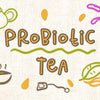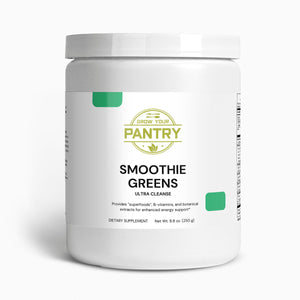Coffee Kombucha: Guide To Drinking And Making
Both coffee and kombucha are beverages that have been enjoyed for thousands of years, all around the world. Now people are experimenting more and more with blends, fusions, and unique tastes, which has brought with it a new creation: Coffee Kombucha. A fermented, bitter drink that is perfect for sipping on throughout the day or as that early morning pick me up.
Not Much Time? Skip To What You'd Like To Learn...
What Is Coffee Kombucha?
How Is Coffee Kombucha Different To Kombucha?
What Is Coffee?
What Is Kombucha?
What Does Kombucha Coffee Taste Like?
Why Drink Kombucha Coffee?
Coffee Kombucha Brands
Fermented Coffee vs. Coffee Kombucha
Health Benefits Of Drinking Coffee Kombucha
Considerations Before Making Coffee Kombucha
How To Make Coffee Kombucha
Storing Coffee Kombucha
Common Questions
What Is Coffee Kombucha?
Coffee Kombucha is fermented coffee that has been left for 10-14 days before being bottled — giving it a unique flavor and taste. It has only been popularised as a fermented beverage in recent years, as kombucha and artisan coffee have both become more popular.
How Is Coffee Kombucha Different To Kombucha?

Although both are considered kombucha for the fact they’re fermented using a SCOBY and share many similar characteristics, there are a few key differences to be aware of.
Coffee vs. Tea - Typically, kombucha is made using fermented tea, whereas coffee kombucha ferments brewed coffee.
Taste - Kombucha is a sweet fermented tea that has slight carbonation; kombucha coffee, on the other hand, is acidic, sour, and an acquired taste.
Brew Time - Coffee kombucha typically takes between 5-7 days to become ready, whereas fermented tea takes up to 14 days.
Rancidity - Coffee is an acidic beverage that can’t be left to ferment for long periods, as it can quickly turn rancid, and indigestible. In contrast, kombucha has been known to be left to ferment indefinitely, with the result being digestible vinegar. Keep an eye on your batch!
What Is Coffee?
Coffee is a beverage that has been brewed from coffee beans. It is commonly consumed as instant granulated form as well as roasted bean variations. Many different brewing methods also exist, such as french press and espresso machines. Since the popularity of coffee has boomed, there are now hundreds of brands of coffee as well as hundreds of new brewing methods, each claiming to be different from the other. Often, coffee is drank with milk to add extra richness and creamy flavor.
What Is Kombucha?

Kombucha is a fermented tea beverage that is slightly fizzy. Thought to have originated in China over 2000 years ago, it has more recently become popular within the health community. It’s purported that the SCOBY (Symbiotic Culture Of Bacteria And Yeast), when brewing, adds many strains of bacteria, yeast, and probiotics. Craft breweries and home brewers have taken this fermented elixir mainstream for its great taste and flavor.
What Does Kombucha Coffee Taste Like?
Coffee kombucha’s taste is often described as bitter, tangy, tart, acidic, and coffee-like. If you’re used to drinking coffee, the acidic and bitter taste will not be a surprise, but the tangy, tart may take some getting used to.
As there are thousands of coffee variations, you will need to experiment with a few options, and brewing methods to get the flavor you’re looking for.
Why Drink Kombucha Coffee?

Taste - Many people that drink kombucha coffee love the taste. It’s tangy, flavorful, and different.
Morning Pick Me Up - Sweet, caffeinated, and sour. The perfect combination that can uplift you.
Replace Coffee - For those looking for a hot coffee replacement, this could be your solution.
Purported Health Benefits - Many health claims surround kombucha, although not clinically proven, it’s a commonly a cited reason to drink this fermented beverage.
New Experiments - If you’ve brewed standard fermented tea, brewed jun kombucha, played around with second ferments, then kombucha coffee may be the next step!
Coffee Kombucha Brands
With the rise of both homebrewing, experimentation, and small-batch craft brewers it wasn’t long before somebody brought out their very own kombucha coffee commercial variation. Both Equinox and Revive kombucha pioneered the way to bring out this unique blend. Below is a deep dive to inform you which brand to pick, what they taste like, the prices, and where to buy them from.
Brand - Revive Kombucha
Variation - Revive kombucha have 7 original brews that they produce. Founded by a couple that had a passion for brewing kombucha, they went from distributing to local restaurants and grocery stores and selling at their local farmer’s market to becoming a nationwide American success story.
Type Of Coffee Bean - Revive kombucha say they experimented with many types of beans, but it wasn’t until they tried the Mocha Java Coffee Bean that had “sweet, fruity, earthy” flavors that their brew tasted great.
Notes - They use all organic products to make their kombucha beverages and are certified: Vegan, USDA Organic, Non-GMO, and Gluten-Free.
Price - Unsure - Unavailable to buy online from there store.
Where To Buy From - They list a handy map where you enter your ZIP code to find your local supplier. ‘Find Revive.’
Brand - Equinox Espresso Coffee Kombucha
Variation - Equinox produce many varieties of soft drinks that
Notes - Equinox ferment arabica coffee beans, by fermenting the coffee they say “So it’s just as good for you to like our green tea drinks.” Equinox proudly states that their beverages contain live cultures and naturally occurring enzymes. They also state: “All our drinks are 100% Organic, Raw, Vegan and Gluten-Free.” Perfect for those that are conscious of their footprint.
Price - 24 Cans For £38.30 ($48) (£1.60 / Can - $2 / Can)
Where To Buy From - Equinox has a robust online presence, and you’re able to buy directly from their website. Equinox Espresso Coffee Kombucha.
Fermented Coffee vs. Coffee Kombucha

Coffee kombucha and fermented coffee are often confused when discussing coffee. Fermented coffee refers to cultured coffees. Cultured coffees can include kombucha coffee or cultured coffee beans. Cultured coffee beans would be green coffee beans that have been fermented before roasting.
This difference in the process leaves different flavors, aromas, and resulting coffee. It’s more expensive to buy and a lot harder to find.
Health Benefits Of Drinking Coffee Kombucha
There’s a lot of ingredients and processes involved when brewing coffee kombucha and purported health benefits coming from each. We’ll break it down for you to better understand where they’re coming from. Most related studies refer to the ingredient or chemical opposed to the batch being analyzed, therefore not comprehensively proven.
Coffee Health Benefits
Antioxidants - The health benefits are thought to have come from coffee containing antioxidants that occur in the coffee bean. Antioxidants have been shown to delay cell damage.
Decrease Muscle Pain - Two cups of coffee after working out has been shown to decrease muscle pain by up to 48%! Including delayed onset muscle injury. jPain Study.
Aid In Weight Loss - A study has been shown that coffee promotes thermogenesis and daily energy expenditure, resulting in a 3-4% increase in calories burned by subjects.
Improved Exercise Results - Coffee consumption has been proven to increase an athlete's performance by 12.3%.
Protects Against Cirrhosis - An ingredient in coffee has been thought to protect against cirrhosis, in particular, the alcoholic type.
Kombucha And Fermenting With A SCOBY Health Benefits
Most of the health claims and benefits of kombucha tea, come from the “tea” that they use to ferment, typically green or black. When brewing coffee kombucha tea is not used; therefore, most of the Coffee Kombucha health benefits are listed above, and only a couple below.
Gut Health - When brewing kombucha, tea ferments leaving lots of bacteria and yeast in the brew. These bacteria and yeast are classed as probiotics, which are said to rebalance our gut. The gut has been linked to many different conditions, including IBS.
Weight Loss - This health claim is slightly loose and unproven. After research, the claim is when brewing coffee kombucha, there is a chemical produced. This chemical has been linked to being an appetite suppressant, which would help in reducing your calorie intake, in turn, aiding with weight loss.
Considerations Before Making Coffee Kombucha
pH - When brewing kombucha, it’s essential to keep the pH in a range between 2.5 - 4. When within this range, the growth of harmful bacteria is prevented, while the bacteria that encourage fermentation and probiotics can flourish. Coffee is an acidic beverage (low pH); therefore, you should not have to add extra starter tea or vinegar to get the batch brewing, be sure to check your pH before and during brewing.
Recommended Type Of Coffee - There are hundreds of variations of coffee, different bean varieties, different roasting methods creating an endless number of flavors. We would recommend using the Arabica bean, and one that has less bitter notes. Warning: It may require much experimenting to get the perfect batch!
Time - Typically, when brewing kombucha, you’ll ferment for 7-14 days. In contrast, coffee kombucha only needs 5-7 days. Coffee tends to over ferment and becomes rancid quite quickly. Make sure to monitor and test regularly.
SCOBY Color - Tea tends to keep the kombucha SCOBY as a yellow-orange color. However, when making coffee kombucha, you should expect the SCOBY to turn brown or black; the longer the coffee ferments, the darker the SCOBY goes.
How To Make Coffee Kombucha
Equipment Required To Brew
-
1 Gallon Mason Jar
-
1 Cup Measuring Cup (250ml)
-
pH Strips (Or Tester)
-
Thermometer
Ingredients Required To Brew
-
4 Cups Of Brewed Ground Coffee(4 cups = 950ml)
-
½ Cup Of Sugar
-
1 SCOBY With 1 Cup Of Starter Tea (250ml)
Method
1. Sterilize all of your equipment with hot water (be careful)
2. Brew your coffee
3. Place your coffee in the jar and add the sugar
4. Stir until all of the sugar has dissolved
5. When room temperature place the SCOBY and starter tea in
6. Let settle then test the pH (look for between 2.5 - 4, if too high add more brewed coffee)
7. Find an area with a temperature between 68-74ºF (20-23ºC)
8. Leave for , test daily
9. Remove the SCOBY, strain the liquid, bottle
Infusions
When bottling the coffee kombucha, you can add infusions, which would enhance or complement the flavor of the brew. It would be suggested to test the infusions just before drinking, instead of flavoring the whole batch. This would avoid too many spoilt experiments!
Here are a few ideas that you can infuse your batch with:
-
Vanilla Extract
-
Cinnamon
-
Cardamon
-
Nutmeg
-
Cocoa Nibs
-
Ginger
-
Lavender
-
Star Anise
Storing Coffee Kombucha

Coffee Kombucha can become rancid pretty quickly. To slow or stop this continual fermentation, you’ll need to store it in a very cold area. It would be best suggested to keep in your fridge and consume within a few days. The maximum you’d want to leave this before consuming is 5-7 days. After this, you risk the rancidity, taste, and quality of your batch.
Another alternative would be to freeze your coffee kombucha. Freezing is the process of reducing the coffee kombucha’s temperature for it to become a solid. Coffee kombucha would need to be flash-frozen to preserve the bacteria. Flash freezing is when the temperature is reduced rapidly to make the beverage frozen. In contrast, slow freezing is when you add something to the freezer; this risks killing the bacteria during the slow freeze process.
Common Questions
How Much Caffeine Is In Coffee Kombucha?
We could not find any commercial brands’ information for the amount of caffeine in coffee kombucha. To get an accurate understanding, we would recommend to check the coffee brand that you’re using and then divide the amount you use by the number of servings to get a rough idea.
The fermentation process naturally starts to break down the caffeine in the coffee, which will slightly reduce the caffeine content. However, you should always check with the supplier if you’re caffeine sensitive.
Do I Use Tea When Making Coffee Kombucha?
When making coffee kombucha, you should not use tea. Instead of where you would typically start the batch by steeping tea bags, instead, you would brew your coffee before adding it to your jar.
Can You Add Coffee To Your Kombucha?
When brewing, you wouldn’t add coffee to your kombucha, as you’d start the batch with coffee. If, however, you’re looking to infuse your already fermented tea kombucha with coffee, you could, but we wouldn’t recommend it. The flavors would clash, leaving for a bad tasting flavor.
Does Coffee Kombucha Make You Poop?
Potentially yes. Coffee is almost famous for the fact that it causes bowel motions. It’s thought that either the caffeine, warm fluid, or a chemical within coffee is responsible for it to trigger the need to go to the toilet.
Is It Safe To Drink Coffee Kombucha Every Day?
When considering how much kombucha to drink, we would suggest sticking to the suggested amount of 8oz (240ml) serving per day. Although check with the brand you’re going to be drinking for if they suggest less, then always follow their advice.
How Much Alcohol In Coffee Kombucha?
It’s estimated between 0.5 - 3%. This is dependent on many factors, such as sugar content, the temperature of brewing, and SCOBY type. If you’re alcohol sensitive, it would be best suggested that you got an alcohol hydrometer to test the alcohol content. Also, to keep the temperature lower in the critical range to inhibit kombucha producing bacteria.







